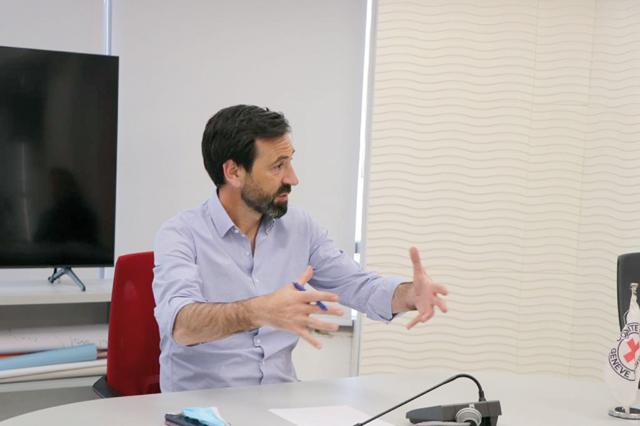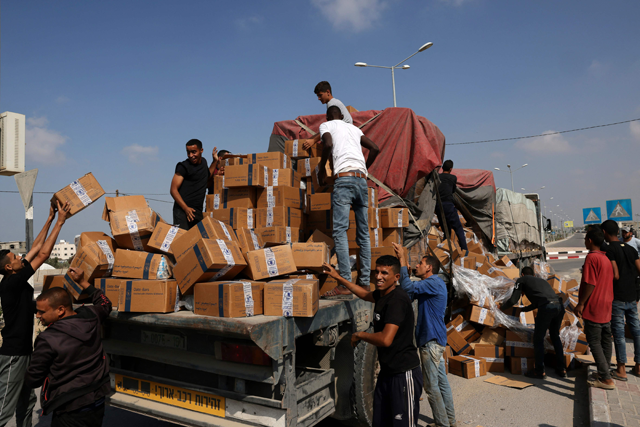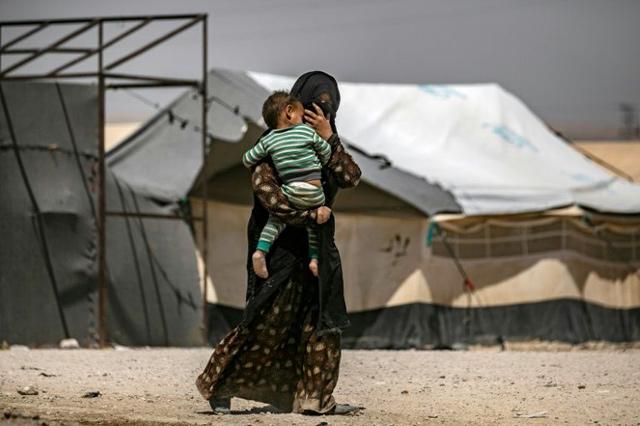You are here
ICRC regional director values cooperation with Jordan
By Maria Weldali - Apr 17,2022 - Last updated at Apr 17,2022

ICRC’s Near and Middle East Regional Director Fabrizio Carboni speaks with The Jordan Times during an interview on Sunday (Photo courtesy of the ICRC)
AMMAN — Jordan has always been an oasis of peace and stability in the region where the International Committee of the Red Cross (ICRC) found “a safe place” for delivering humanitarian aid, said ICRC’s Near and Middle East Regional Director Fabrizio Carboni.
“ICRC’s relationship with Jordan is historical. We deeply value our long history of cooperation with its authorities from which we found understanding and support,” Carboni told The Jordan Times in an exclusive interview on Sunday.
The ICRC delegation in the Kingdom is a key logistical and training hub for the committee’s operations, according to Carboni, who said that Jordanian authorities have managed Syrian refugees remarkably, to whom they extended empathy at the highest level.
Speaking of the ongoing crisis in Ukraine, its impact on the region and whether or not it has highlighted global differences in responding to crises, Carboni indicated that the size of the crisis definitely took the world by surprise, and the harrowing images of millions of people displaced in such a short period of time is “quite unique” in recent history.
Carboni stated that the ICRC has been present in Ukraine trying to assist its population, evacuate civilians and operate in close proximity to people affected by fragility and conflict.
“The crisis in Ukraine illustrates how difficult it is to carve a humanitarian space for actors like us who want to be perceived as neutral,” he said.
As a humanitarian organisation, the ICRC perceives neutrality to be essential. However, the Ukraine crisis “exposed a form of racism which not necessarily represents all, he said, noting that these acts of discrimination are “unacceptable and shocking”, according to Carboni.
The global wave of support for Ukraine has reminded people of their shared humanity, said Carboni, noting that crises in the Middle East have also received a strong reaction when they first began.
However, in the case of the Palestinian humanitarian crisis, he said it is one of the oldest crises in the world and its people are victims of that, he said.
“In a situation of conflict, we need this space where no politics should intervene… so we would focus on the humanitarian work, which is a difficult thing for the people who are involved in the conflict to understand,” he said.
The gravity of the Ukrainian crisis has definitely had ripple effects on Jordan and the region, hurting growth and leading to faster inflation, according to Carboni, who said that within the very difficult situation the world is experiencing, Jordan “has done as much as it can [to do] the right thing to keep the place stable and face all possible challenges”.
“Jordan is a country where we really want to be, a country we want to work with its local capacity, with the aim to develop a humanitarian answer for tomorrow,” Carboni said.
Carboni continued by providing snapshots of the current situation in some Middle Eastern states the ICRC operates.
He said the Yemeni crisis is intensifying, and the country still deals with overlapping and compounding struggles highlighted by displacement, economic crisis, movement restrictions, disease outbreak, climate crisis and many more.
In Syria, the level of violence has decreased, however, the situation of the people is now worse, he said, noting that no reconstruction has been made to date, and the present infrastructure is collapsing.
The ICRC delegate added that 90 per cent of the Syrian population living in Syria is under the poverty line. Fifty per cent are unemployed, and 12 million lack food security, he added.
The situation in Lebanon, “a country that was already fragile and now suffers from a financial crisis of historical dimensions”, has been followed by the ICRC with “great attention”, and humanitarian work has been carried out. But still the country’s public services are “weak and collapsed”, he noted.
Replying to a question on what would give Palestinians a clear future; he said that “there is no humanitarian aid that gives an answer for Palestinians... and we [the world] do not have the courage to find a solution, so we talk about humanitarian action which is not a substitute for political solutions”.
According to Carboni, humanitarian aid cannot solve problems, rather it helps stabilise the environment to avoid total collapse.
“The root causes and drivers of violence in the region are probably not addressed… and if we want a more stable and peaceful region, we need to have a political dimension of peaceful coexistence,” Carboni stated.
Crises are driving humanitarian suffering to a staggering scale, and if the humanitarian consequences of conflict are not seriously addressed, they often come back, deepening human misery and leading to more violence, frustration and bitterness, he said.
“To achieve peace we need political, cultural and social inclusion,” he added.
Related Articles
AMMAN — Amid the deepening humanitarian crisis in the besieged Gaza Strip, the International Committee of the Red Cross (ICRC) calls for unr
BEIRUT — The International Committee of the Red Cross has started collecting (ICRC) DNA samples to help identify thousands of people who dis
GENEVA — The Red Cross warned Thursday that displaced people in and around Syria’s Al Hol camp were facing an “apocalyptic” conditions,
















